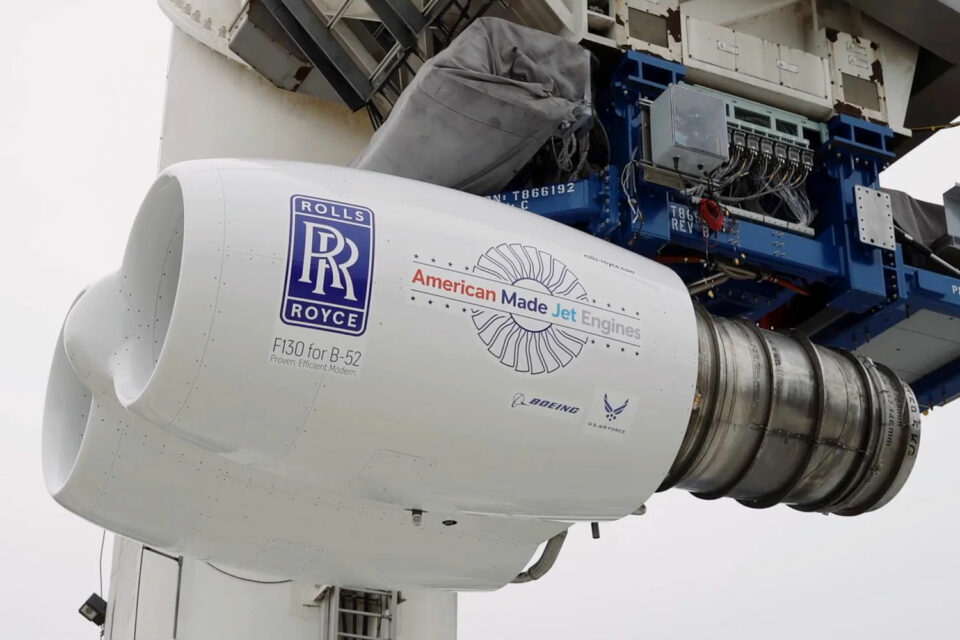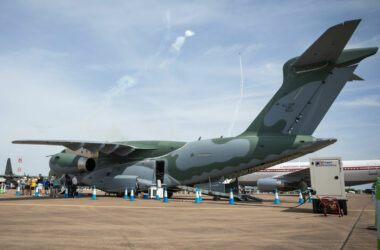Rolls-Royce announced that it has successfully completed the Critical Design Review (CDR) of the F130 engine, which will power the B-52J, an update of the U.S. Air Force’s (USAF) oldest strategic bomber.
The step brings one step closer to the first flight of one of Boeing’s eight-engine jets. The review was carried out in October, but was only revealed by the manufacturer this week.
The F130 is a derivative of the BR725 civil turbofan, used in business jets. It was selected by the USAF in 2021 for the CERP (Commercial Engine Replacement Program), which aims to replace Pratt & Whitney’s TF-33 engines.
Follow Air Data News: WhatsApp | Google News | Instagram | LinkedIn | Twitter | Facebook
Rolls-Royce has spent the past two years developing the engine with Boeing and now plans to begin altitude testing in February at the U.S. Air Force Arnold Engineering Development Complex in Tullahoma, Tennessee.

“Rolls-Royce also recently completed the first phases of F130 sea-level tests in its Indianapolis facilities and wrapped up Rapid Twin Pod Tests at NASA Stennis Space Center this summer,” the company said.
The NASA tests are taking place in the B-52’s signature dual-pod engine configuration, which carries its eight engines in pairs.
As part of the contract with the U.S. Department of Defense, the F130 engines will be manufactured, assembled and tested at Rolls-Royce’s Indianapolis facility.

The CERP program calls for the replacement of engines on 76 B-52H bombers, but a lack of funding for the project has pushed back entry into service to 2033.
In addition to the F130 engine, the “BUFF”, as it is informally known in the Air Force, will also feature an APG-79 AESA radar starting in 2027, when it will be designated B-52J.
The Air Force plans to keep the B-52 in operation until 2050, alongside the B-21 Raider, a stealth bomber under development by Northrop Grumman.






